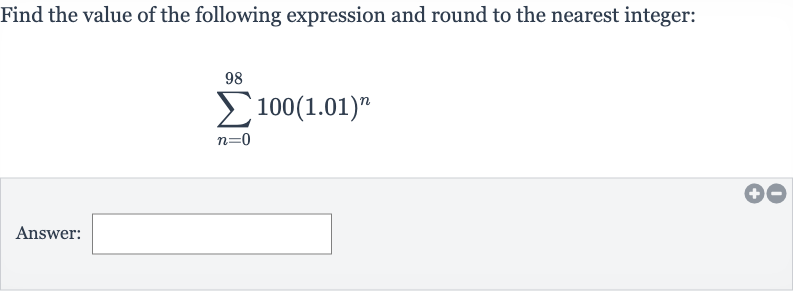Full solution
Q. Find the value of the following expression and round to the nearest integer:Answer:
- Recognize Given Expression: We recognize that the given expression is a geometric series with the first term and the common ratio . The sum of a finite geometric series can be calculated using the formula , where is the number of terms.
- Determine Number of Terms: First, we need to determine the number of terms in the series. Since the series starts at and goes up to , there are a total of terms (we include the starting term).
- Plug Values into Formula: Now we can plug the values into the sum formula for a geometric series: .
- Calculate Power: We calculate the power using a calculator to avoid any manual calculation error.
- Substitute Power into Formula: After calculating the power, we substitute it back into the formula: .
- Perform Subtraction: We perform the subtraction in the numerator and the denominator: .
- Simplify Expression: We multiply the numerator and denominator by to simplify the expression: .
- Calculate Value: We calculate the value of the expression using a calculator to ensure accuracy.
- Round Result: Finally, we round the result to the nearest integer as the question prompt asks for the rounded value.

